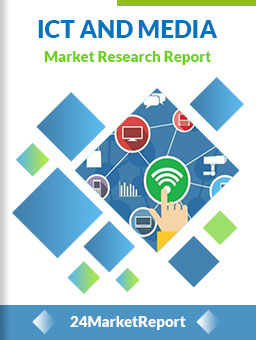
COMPANIES COVERED
GoogleDownload FREE Report Sample
Download Free sampleQuantum Computing Market refers to the commercial ecosystem revolving around quantum computers, which are machines that leverage the principles of quantum mechanics—such as superposition and entanglement—to perform computations far beyond the capabilities of classical computers. Unlike classical computers that use bits (0s and 1s), quantum computers use quantum bits or qubits, which can represent multiple states simultaneously. This enables them to solve complex problems in cryptography, optimization, simulation, and machine learning at unprecedented speeds.
Quantum computing spans three primary domains:
Hardware: Devices based on superconducting qubits, trapped ions, and topological qubits.
Software: Quantum programming languages and compilers.
Cloud Services: Remote access to quantum computing infrastructure.
Applications extend across various sectors including aerospace, defense, finance, pharmaceuticals, logistics, and more, promising revolutionary breakthroughs in areas like material science, AI, and cryptography.
To know more about market statistics, Download a FREE Sample copy
Market Size
Global quantum computing market was valued at USD 1.86 billion in 2024 and is expected to reach USD 12.62 billion by 2032, growing at a robust CAGR of 27.1% during the forecast period (2024-2032).
This growth is driven by technological advancements, increased government and private investments, and a rising demand for quantum solutions across industries.
Key Market Statistics:
Historical Growth (2018-2024): Surge in R&D activities, especially in North America and Europe.
Future Projections (2024-2032): Broad adoption in BFSI, space, and logistics.
Revenue Share: North America dominates, holding over 40% market share.
Hardware vs. Software: Hardware leads in market value, but software and cloud services are expected to grow faster due to lower entry barriers and scalability.
Market Dynamics (Drivers, Restraints, Opportunities, and Challenges)
Drivers:
Growing demand for high-performance computing in AI, optimization, and simulation.
Rising government and defense sector investments in national quantum initiatives (e.g., US National Quantum Initiative Act, EU Quantum Flagship).
Strategic partnerships between tech giants (e.g., IBM and NASA, Google and CERN).
Restraints:
High infrastructure costs for quantum hardware deployment.
Limited quantum talent pool and need for specialized skills.
Uncertainty in long-term commercialization due to ongoing R&D phase.
Opportunities:
Cloud-based quantum computing platforms enabling broad accessibility (e.g., IBM Quantum Experience).
Rising interest in post-quantum cryptography, creating demand in cybersecurity.
Use in drug discovery and materials design, especially in pharmaceutical R&D.
Challenges:
Hardware stability and error correction remain key technical barriers.
Regulatory and ethical implications of quantum supremacy and potential misuse.
Lack of standardization in software and protocols.
Regional Analysis
North America:
Leading market due to early adoption and heavy R&D investments.
U.S. government funding and presence of major players like Google, IBM, Microsoft.
Europe:
Strong initiatives like EU’s Quantum Flagship Program.
Germany and the UK at the forefront of academic and commercial development.
Asia-Pacific:
Rapid advancements by China, Japan, and India.
China’s national quantum research initiatives and Alibaba’s active presence.
South America:
Gradual adoption, focused on academic research and collaborations.
Brazil leading regional efforts in quantum education and innovation.
Middle East & Africa:
Nascent market, but increasing interest in advanced computing for oil & gas simulations and cybersecurity.
Competitor Analysis
The quantum computing space is competitive with key players pushing innovations across the value chain.
Leading Companies:
IBM: Pioneers in cloud-based quantum systems.
Google: Achieved quantum supremacy with Sycamore processor.
Microsoft: Azure Quantum integrates multiple quantum solutions.
D-Wave Solutions: Specializes in quantum annealing systems.
Rigetti Computing: Hybrid quantum-classical computing architecture.
Intel: Focuses on scalable quantum processors.
Alibaba Group: China’s leader in quantum research via DAMO Academy.
Emerging Players:
Origin Quantum Computing (China)
Anyon Systems Inc. (Canada)
Cambridge Quantum Computing (UK)
Nokia Bell Labs (EU)
Airbus Group: R&D on quantum for aerospace applications
Global Quantum Computing Market: Market Segmentation Analysis
Quantum Computing Market provides a deep insight into the global Quantum Computing Market, covering all its essential aspects. This ranges from a macro overview of the market to micro details of the market size, competitive landscape, development trend, niche market, key market drivers and challenges, SWOT analysis, value chain analysis, etc.
The analysis helps the reader to shape the competition within the industries and strategies for the competitive environment to enhance the potential profit. Furthermore, it provides a simple framework for evaluating and assessing the position of the business organization. The report structure also focuses on the competitive landscape of the Global Quantum Computing Market. Quantum Computing Market introduces in detail the market share, market performance, product situation, operation situation, etc., of the main players, which helps the readers in the industry to identify the main competitors and deeply understand the competition pattern of the market.
In a word, Quantum Computing Market is a must-read for industry players, investors, researchers, consultants, business strategists, and all those who have any kind of stake or are planning to foray into the Quantum Computing market in any manner.
Market Segmentation (by Application)
Space and Defense
Government
Automotive
Manufacturing & Logistics
Banking and Finance
Market Segmentation (by Type)
Hardware
Software
Cloud Services
Key Company
D-Wave Solutions
IBM
Microsoft
Rigetti Computing
Intel
Origin Quantum Computing Technology
Anyon Systems Inc.
Cambridge Quantum Computing
Airbus Group
Nokia Bell Labs
Alibaba Group Holding
Toshiba
Geographic Segmentation
North America (United States and Canada)
Europe (Germany, UK, France, Italy, Spain, and Russia, etc.)
Asia-Pacific (China, Japan, Korea, India, Australia, and Southeast Asia, etc.)
South America (Brazil, Mexico, and Argentina, etc.)
Middle East & Africa (Turkey, UAE, Saudi Arabia, and South Africa, etc.)
Frequently Asked Questions (FAQs)
What is the current market size of the Quantum Computing Market?
Which are the key companies operating in the Quantum Computing Market?
What are the key growth drivers in the Quantum Computing Market?
Which regions dominate the Quantum Computing Market?
What are the emerging trends in the Quantum Computing Market?

Speak to our Custom Research Team and get the Custom Research in a budget
Custom ResearchFrequently Asked Questions ?
A license granted to one user. Rules or conditions might be applied for e.g. the use of electric files (PDFs) or printings, depending on product.
A license granted to multiple users.
A license granted to a single business site/establishment.
A license granted to all employees within organisation access to the product.
Upto Working 24 to 48 hrs
Upto 72 hrs max - Weekends and Public Holidays
Online Payments with PayPal and CCavenue
Wire Transfer/Bank Transfer
Hard Copy



 Industry Market Size
Industry Market Size SWOT Analysis
SWOT Analysis Industry Major Players
Industry Major Players Revenue Forecasts
Revenue Forecasts Historical and Forecast Growth
Historical and Forecast Growth Profitability Analysis
Profitability Analysis
























